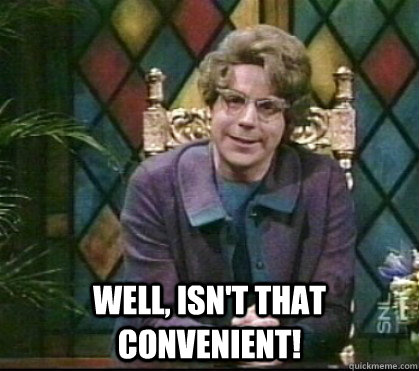A thought just occurred to me. If Insurance companies are the "Buyers" to the Providers' "Sellers" role, one possible check on prices would be to allow insurance companies more power to negotiate with providers. There should still be protections for the insured, but consumer choice doesn't seem to be have an affect on the providers prices. Insurers, on the other hand, could have more clout in controlling prices with buying choices, right?
My head hurts....
Insurance companies do negotiate and get huge discounts.....for their covered persons. But the system is very uneven and I might even claim corrupt.
For any one procedure or medication there are multiple final cost prices. There is the full price you get charged if you have no insurance. There are multiple negotiated prices that various insurance companies will pay. And there is the price Medicare/Medicaid will pay. IMO, this is a large part of the problem. The providers will soak whoever they can for the maximum amount and the prices get more reasonable when they are negotiated or set by the government.
I had a drug that required infusion. I got this drug when I had insurance and another time when I didn't have coverage (unbeknownst to me at the time but that's another story). Full price for one monthly infusion....$24,000. The negotiated price for my insurance company was $14,000 of which the insurance would pay about $10,000 and I was left with about $4,000 as my share. However, the drug manufacturer had a price support program for the patient. They would reduce my cost to where all I had to pay was $50, so in effect they were waiving about $3,950 of my cost. There was a catch though, they would only offer that price support program to folks who had private health insurance. It was not offered to those without insurance or to those on Medicare/Medicaid. When my coverage lapsed and I got an infusion, the hospital tried to collect the full $24,000 from me for a drug I had received a few other times for $50. Yeah. What this tells me is that they were plenty happy to sell that IV bag full of clear liquid as long as they could get about $10,000 for it. And remember that $10,000 had to come from somewhere, it was built in to their health insurance premium structure so all their insured were in effect paying for it. There are a lot of problems with a system that works this way. There is no accountability. There is no consumer holding their feet to the fire. In most cases, there is no one consumer that can say "no, I won't pay that much". My doctor that prescribed it had no idea it cost that much. There is no way in hell it was actually worth anywhere near that amount. Why charge $24,000 for something you are perfectly content to get $10,000 for?
This is one example of one drug. This very thing plays out everyday for every procedure, every facility, every provider, every drug. This system is so hopelessly f#cked up the only thing that could possibly begin to fix it is one payer socialized medicine. Of course that introduces it's own problems of accessibility and quality of care but the cost issue is what needs to be, has to be fixed. It is so far beyond being fixed by pooling and crossing state lines it isn't even funny. Our elected officials don't really want to fix it because of the health and insurance industry lobbies and money that gets poured into their coffers. The money that comes from that extra $10,000 they get to charge somebody for a drug that probably costs them less than $100 to make. Nobody involved in the system has any incentive to fix it. They are all getting paid handsomely under the status quo. The only people suffering are those who pay insurance premiums and those who don't have insurance and are driven into bankruptcy....oh you noticed, that's every one except the profiteers.

